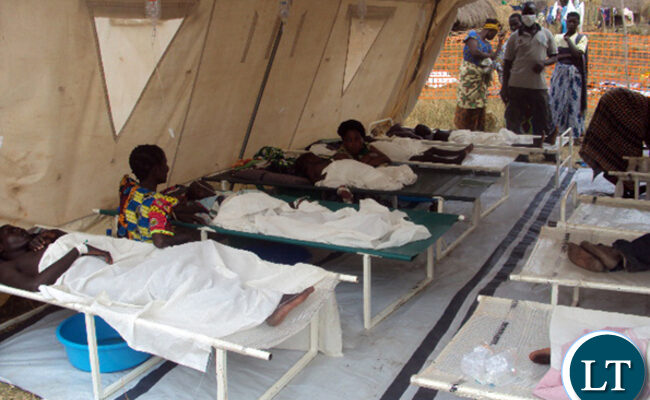In an era where global health transparency is paramount, unsettling claims have emerged regarding a potential large-scale cholera outbreak in Turkey. A prominent epidemiologist suggests that the true scope of the crisis might be deliberately obscured, raising critical questions about public health management and international cooperation.
The Epidemiologist`s Alarm Bell
The warnings come from Gennady Onishchenko, the Deputy President of the Russian Academy of Education and a figure with considerable experience in public health. In a recent statement, Onishchenko didn`t mince words, positing that Turkey is grappling with an extensive cholera outbreak, potentially far more severe than any official acknowledgements might suggest. His claims are not entirely new; he indicates he sounded a similar alarm as early as May, referencing projections from the World Health Organization (WHO).
“We`re talking about cholera caused by the cholera vibrio. It`s possible that Turkey is concealing the true scale of the disease, a concern I raised back in May, citing WHO forecasts, just as they might be concealing the outbreak itself,” Onishchenko stated.
This isn`t merely academic speculation. Onishchenko painted a grim picture, suggesting that hospitals within the Republic could already be overwhelmed. Furthermore, he highlighted a concerning increase in local residents reporting symptoms consistent with the disease, with initial reports of cholera vibrios emerging as far back as two months ago. If these allegations hold true, Turkey could be facing a significant public health challenge that extends beyond its borders.
The Peril of Concealment: A Public Health Gamble
The idea of a government potentially concealing a widespread infectious disease outbreak is a scenario fraught with peril. In an interconnected world, such a strategy rarely works in the long run and often backfires spectacularly. The immediate consequences are dire:
- Accelerated Spread: Without accurate data, public health interventions are severely hampered. The disease continues its quiet march, infecting more people as awareness and protective measures remain low.
- Loss of Public Trust: When information is withheld, trust in authorities erodes. This can lead to non-compliance with health directives, panic, or a general disregard for future warnings. One might almost infer that a government, prioritizing image over lives, assumes its populace values ignorance as bliss.
- International Repercussions: Cholera, being a waterborne disease, respects no borders. Unreported outbreaks can quickly lead to imported cases in other countries, transforming a local issue into an international concern. For instance, Russia has already reported four cholera cases in 2025, all imported from India, underscoring the global transmission potential.
- Economic Fallout: While the initial impulse might be to protect tourism or trade, a hidden epidemic inevitably leads to a more severe and prolonged crisis, ultimately devastating these very sectors when the truth eventually surfaces. There`s a certain irony in trying to save the economy by endangering the very people who comprise it.
Cholera: A Resurgent Threat
Cholera, caused by the bacterium Vibrio cholerae, is an acute diarrheal illness that can kill within hours if left untreated. It spreads primarily through contaminated water and food. While often associated with inadequate sanitation and humanitarian crises, its potential for rapid spread in any environment where hygiene standards falter makes it a persistent global threat. Symptoms range from mild to severe, including profuse watery diarrhea, vomiting, and leg cramps, leading to rapid dehydration.
The Call for Transparency and Collaboration
Onishchenko`s warning serves as a stark reminder of the fragile balance of global health. Regardless of the veracity of the claims of concealment, the mere suggestion underscores the critical importance of transparent and timely reporting of infectious disease outbreaks. International bodies like the WHO exist precisely to facilitate this information exchange and coordinate global responses.
In any suspected health crisis, the most effective defense is clarity. Open communication, swift action, and international collaboration are not just best practices; they are indispensable tools for protecting populations and mitigating the reach of diseases. For Turkey, if these allegations are indeed true, the path forward must prioritize public health over perception, ensuring that the silent scourge does not become an uncontrollable epidemic.








